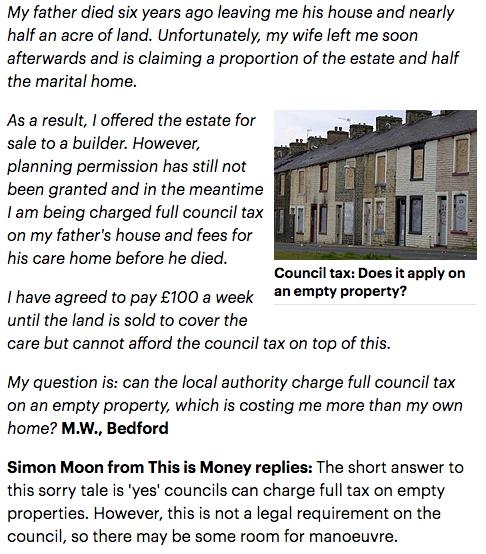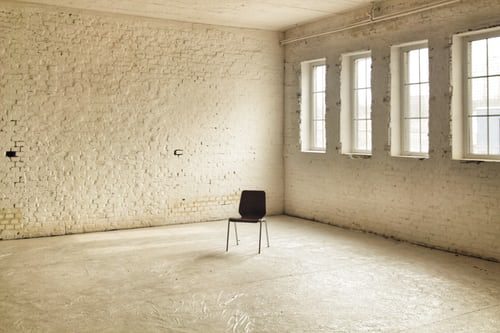Understanding council tax can be difficult. It is even more confusing with empty properties. Do you pay council tax on an empty property? This article will help you understand.
What is Council Tax?
Council tax is a local tax in the UK. It helps pay for services like schools, roads, and rubbish collection. Most households must pay council tax. The amount depends on the value of your property and where you live.

Credit: newlineconstruction.co.uk
What is an Empty Property?
An empty property has no one living in it. This can happen for many reasons. Maybe the owner is trying to sell it. Maybe it is being renovated. Or maybe the owner has another home and does not use this one.
Do You Pay Council Tax on Empty Properties?
Yes, you usually pay council tax on empty properties. But there are some exceptions. These exceptions can save you money. Let’s look at the different cases.
Exemptions From Council Tax
Some empty properties do not have to pay council tax. These are called exemptions. Here are some common exemptions:
- Properties that are empty because the owner is in hospital or a care home.
- Properties that are empty because the owner has died. This exemption lasts for up to six months after probate is granted.
- Properties that are empty because the owner is in prison.
- Properties that are empty because they are unfit to live in. This could be because of fire or flood damage.
These exemptions help people who cannot live in their homes. They do not have to pay council tax during these times.
Discounts On Council Tax
Some empty properties can get discounts on council tax. These discounts are different from exemptions. Discounts mean you pay less council tax, not zero. Here are some common discounts:
- Properties that are empty for less than two years. Some councils offer discounts for these properties.
- Properties that are empty because they are being renovated. Some councils offer discounts for up to 12 months.
Discounts help people who have empty properties for a short time. They can save some money on council tax.

Credit: www.totallandlordinsurance.co.uk
How to Apply for Exemptions or Discounts
If you think your empty property qualifies, you need to apply. Here is how you can do it:
- Contact your local council. They will have information about exemptions and discounts.
- Fill out any forms they give you. You may need to provide proof. This could be documents like hospital letters or renovation plans.
- Wait for a decision. The council will tell you if you get an exemption or discount.
It is important to contact your council as soon as possible. This way, you can avoid paying too much council tax.
Penalties for Not Paying Council Tax
If you do not pay council tax, there can be penalties. These penalties can be expensive. Here are some common penalties:
- Interest charges. If you miss payments, you may have to pay extra.
- Legal action. The council can take you to court. This can result in even more costs.
It is best to pay your council tax on time. If you cannot pay, contact your council. They may be able to help you with a payment plan.
Frequently Asked Questions
What Is Council Tax On An Empty Property?
Council tax is a local tax on properties, including empty ones.
Do You Pay Council Tax If The Property Is Empty?
Yes, owners usually pay council tax on empty properties.
Are There Exemptions For Empty Property Council Tax?
Yes, some exemptions exist, like if the property is under renovation.
How Long Is The Empty Property Council Tax Exemption?
It varies by local council, typically 6 months.
Conclusion
Understanding council tax on empty properties can be confusing. But it is important to know the rules. You usually have to pay council tax on empty properties. However, there are exemptions and discounts that can help you save money. Always contact your local council for advice. They can help you understand your options. This way, you can avoid penalties and keep your finances in order.
Summary Table
| Situation | Exemption/Discount |
|---|---|
| Owner in hospital or care home | Exemption |
| Owner has died | Exemption (up to six months after probate) |
| Owner in prison | Exemption |
| Property unfit to live in | Exemption |
| Empty less than two years | Possible discount |
| Being renovated | Possible discount (up to 12 months) |
This table can help you see if you qualify for an exemption or discount. Remember, always check with your local council. They have the most accurate information. This way, you can be sure you are paying the right amount of council tax.
Thank you for reading. We hope this article helped you understand council tax on empty properties. If you have more questions, contact your local council. They are there to help you.
